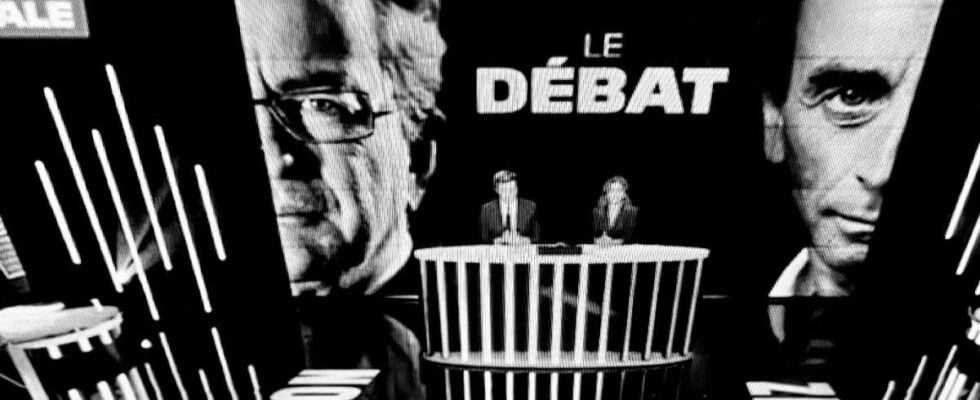Eric Zemmour, Emmanuel Macron … Since the start of the presidential campaign, the speaking time granted to certain candidates has caused much talk. However, it is strictly supervised by the Audiovisual and Digital Communication Regulatory Authority (Arcom), which has just replaced the CSA. Since January 1, television channels and radio stations must also apply new rules. Explanations.
Outside the election period, a third of speaking time is reserved for the executive, in other words for the President of the Republic and the government. The remaining two thirds must be devoted to political parties, the majority included. This rule applied until December 31, 2021.
Airtime makes an appearance
In recent days, two elements have been taken into account: the speaking time and the airtime of the candidates (presumed or declared) and of their supporters. Clearly, it is no longer only the interventions of political personalities which are counted, but also the sequences which are devoted to the candidates, provided that they are not explicitly unfavorable to them.
Another change: the media must now respect the “principle of fairness”. This notion is based on “the representativeness of the candidates” and on their “capacity to concretely demonstrate (their) involvement in the campaign” (organization of public meetings, participation in debates, etc.).
A candidate will thus have greater media exposure if he is well ranked in the polls or if his political formation won a lot of votes in previous elections. This is why Valérie Pécresse now enjoys more speaking and air time than Eric Zemmour, explained on franceinfo Roch-Olivier Maistre, the president of Arcom.
The official campaign will start on March 28
From March 8, the date on which the official candidacies will be known, this principle of equity will be reinforced by the mention of “comparable programming conditions”. The media which previously broadcast candidates’ meetings in the middle of the night to fulfill their objectives will no longer be able to do so. All people targeting the Élysée Palace and their supporters will have access to the four time slots identified by Arcom: morning (6-9 a.m.), day (9-6 p.m.), evening (6-24 p.m.) and night (midnight). -6h).
It was not until March 28, two weeks before the first round, that the “principle of equality” replaced that of fairness. From this date, we will enter the official electoral campaign and all the candidates will have the right to the same speaking time and airing. TV channels and radio stations will, however, have to observe a “reserve period” the day before and the day of each election (Sundays 10 and 24 April).
Until the results of the second round, the media are obliged to transmit the count of the speaking and air time of each candidate. It is the independent authority which is then responsible for ensuring compliance with the rules, by carrying out checks by sampling. In the event of non-compliance, Arcom may apply formal notices or sanctions.
